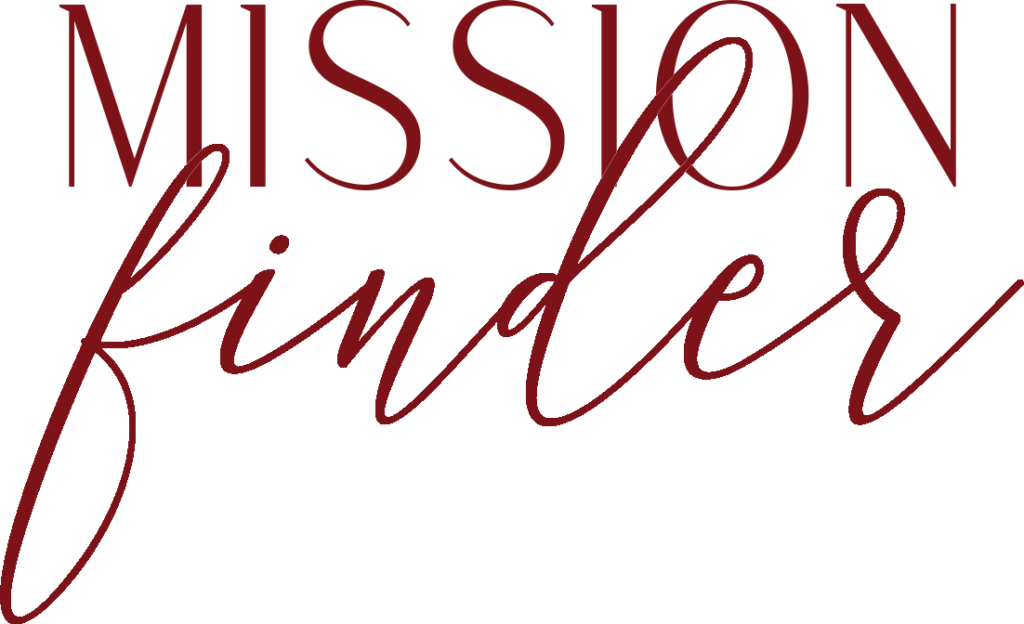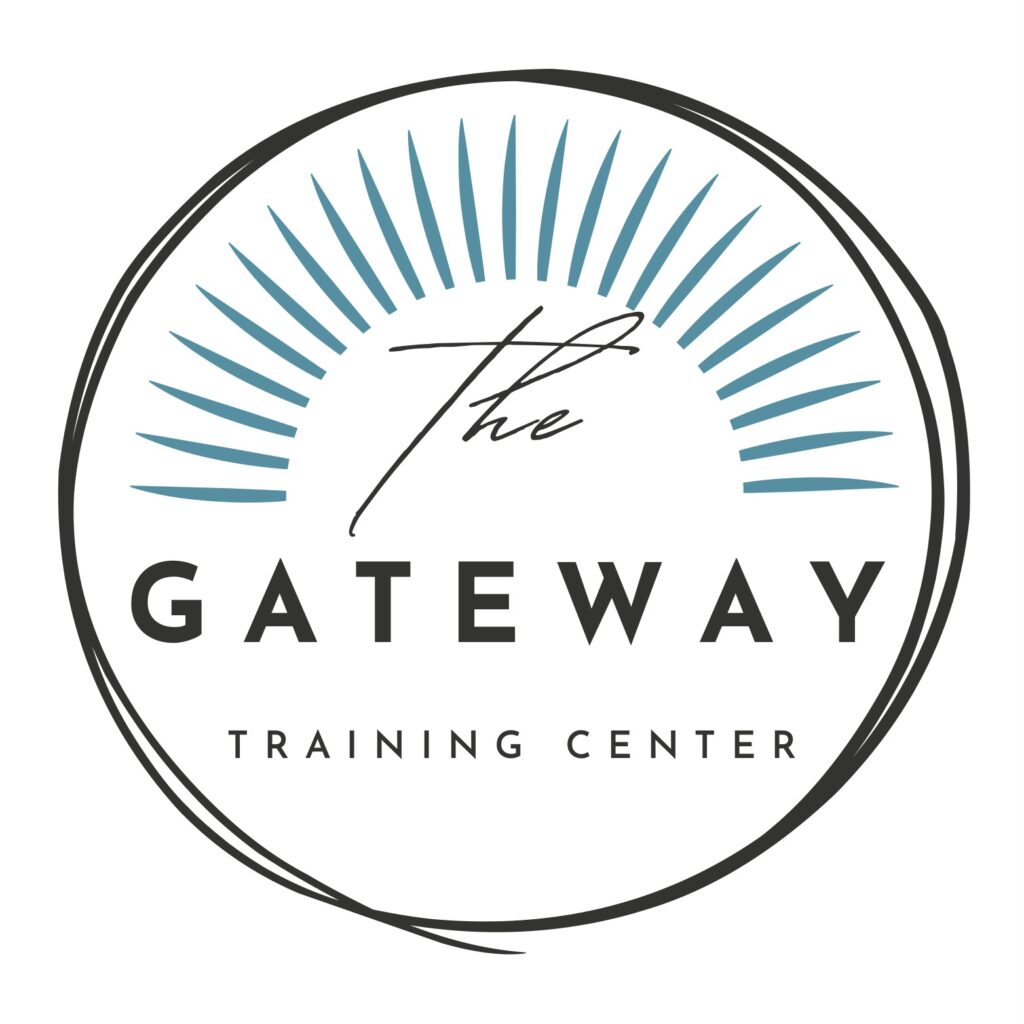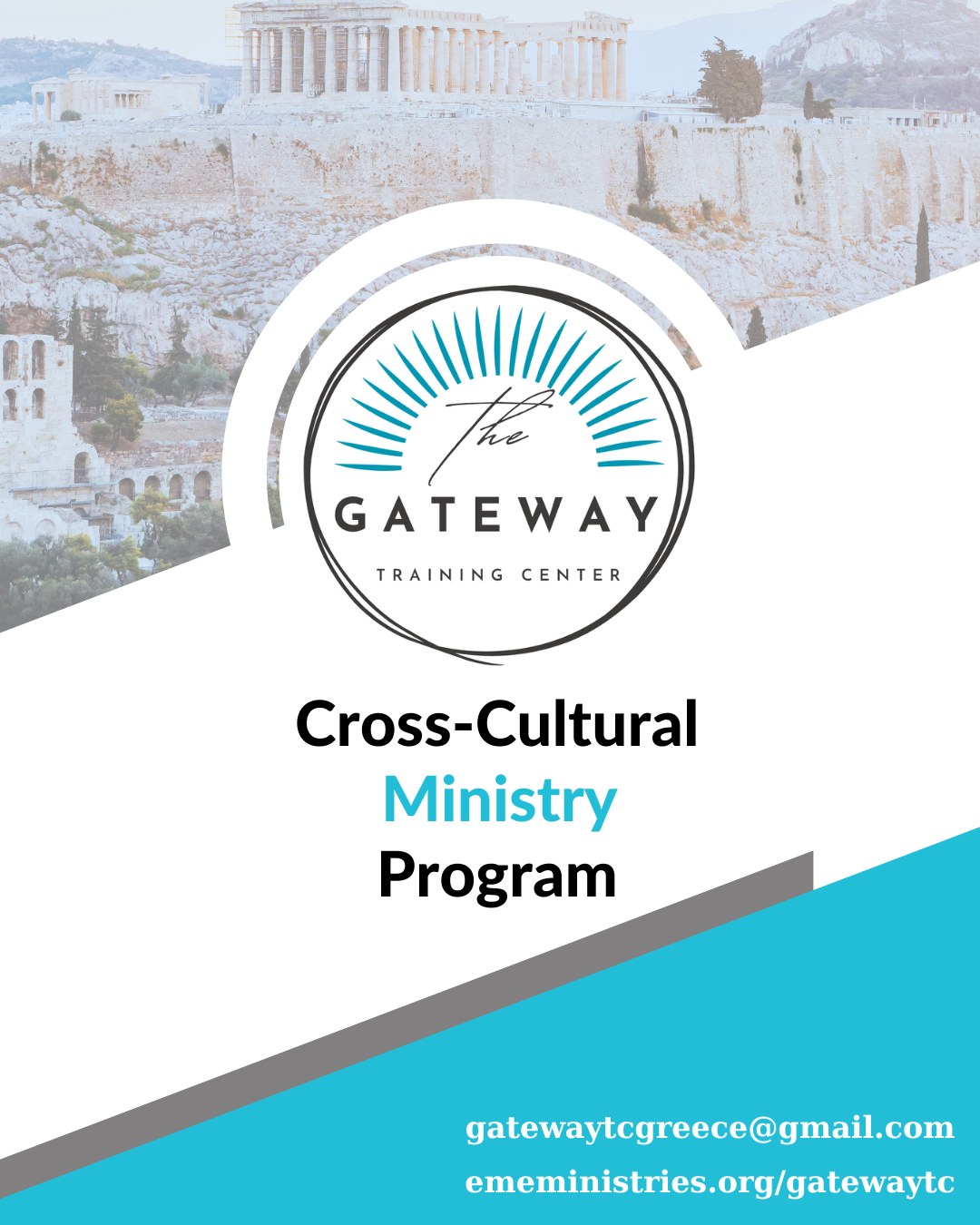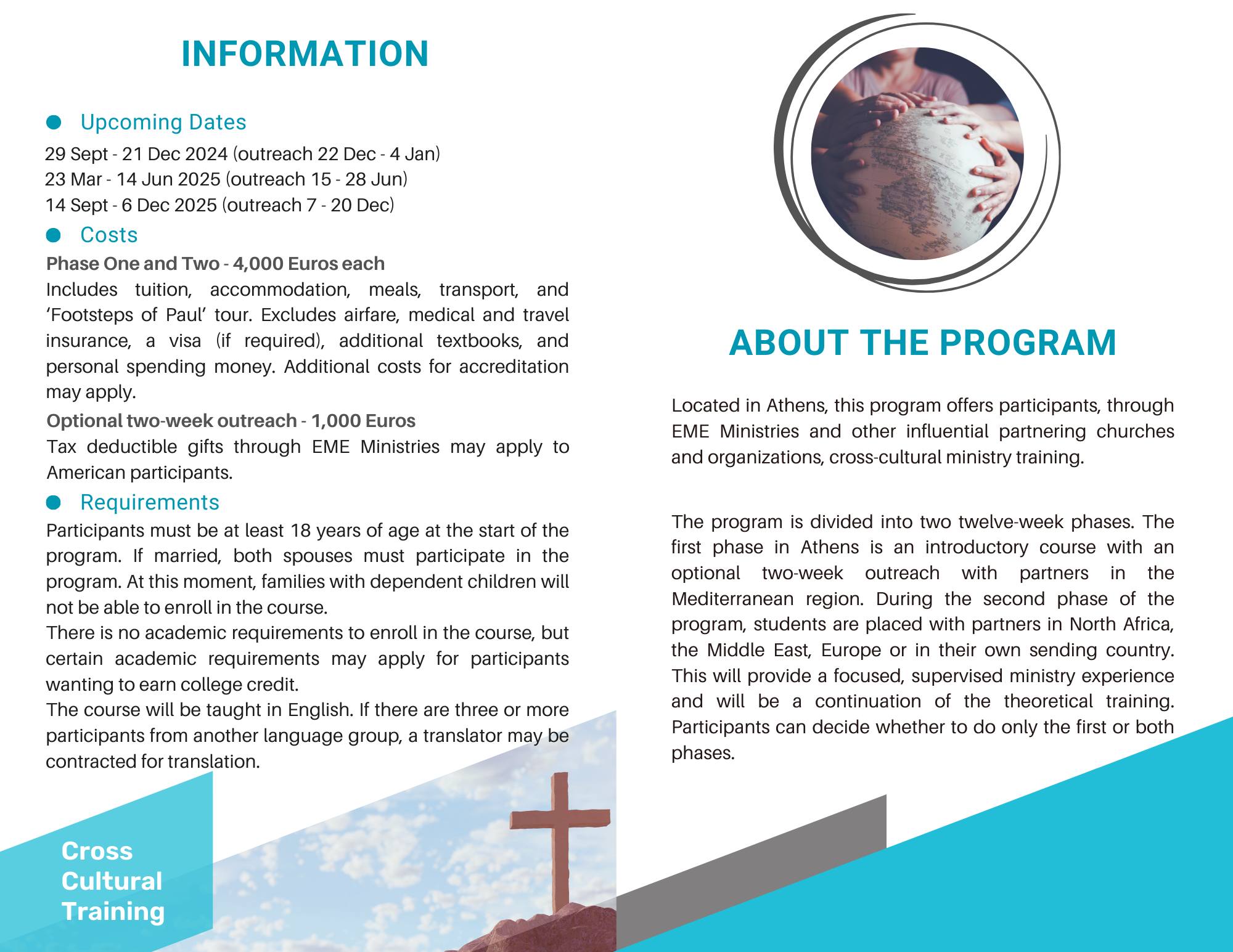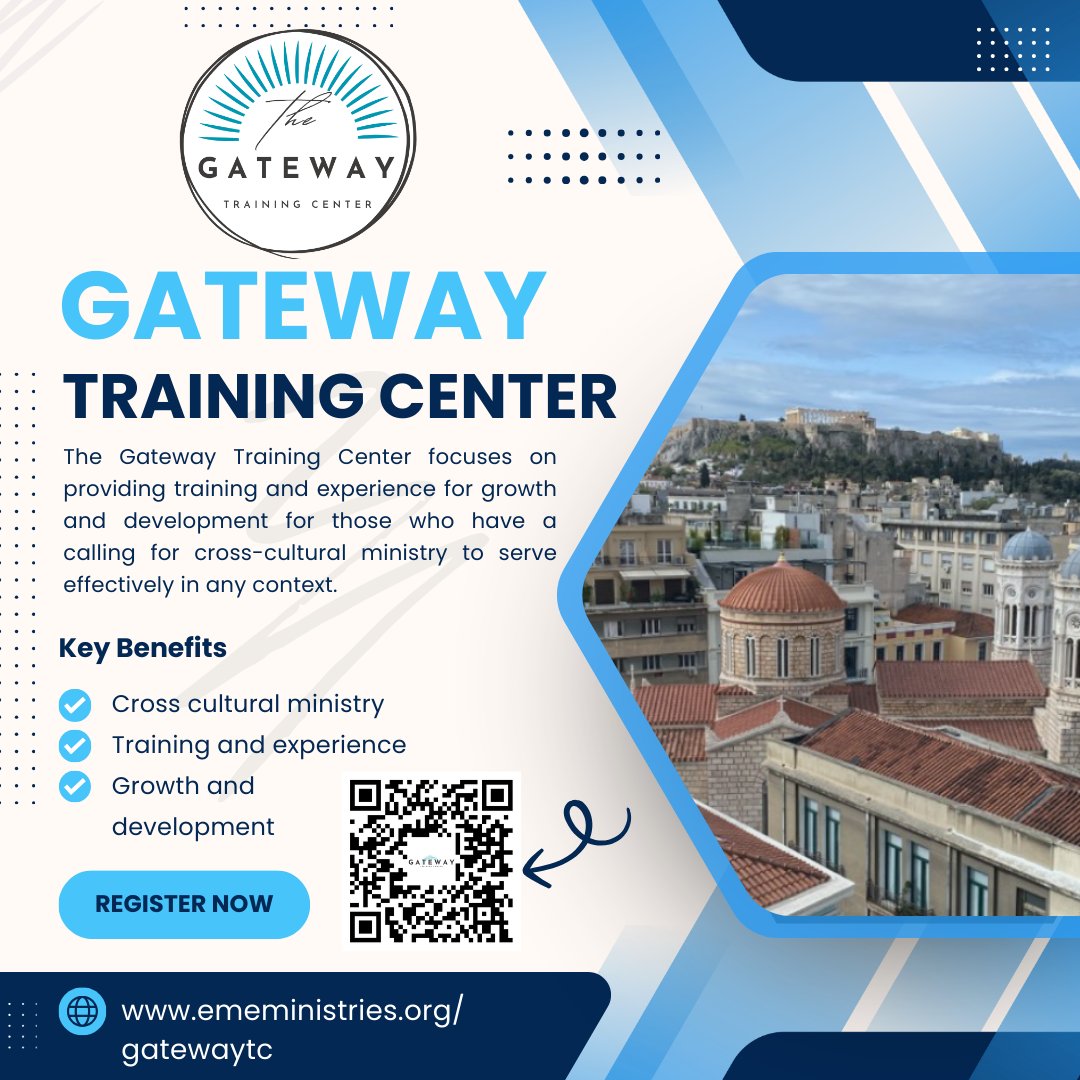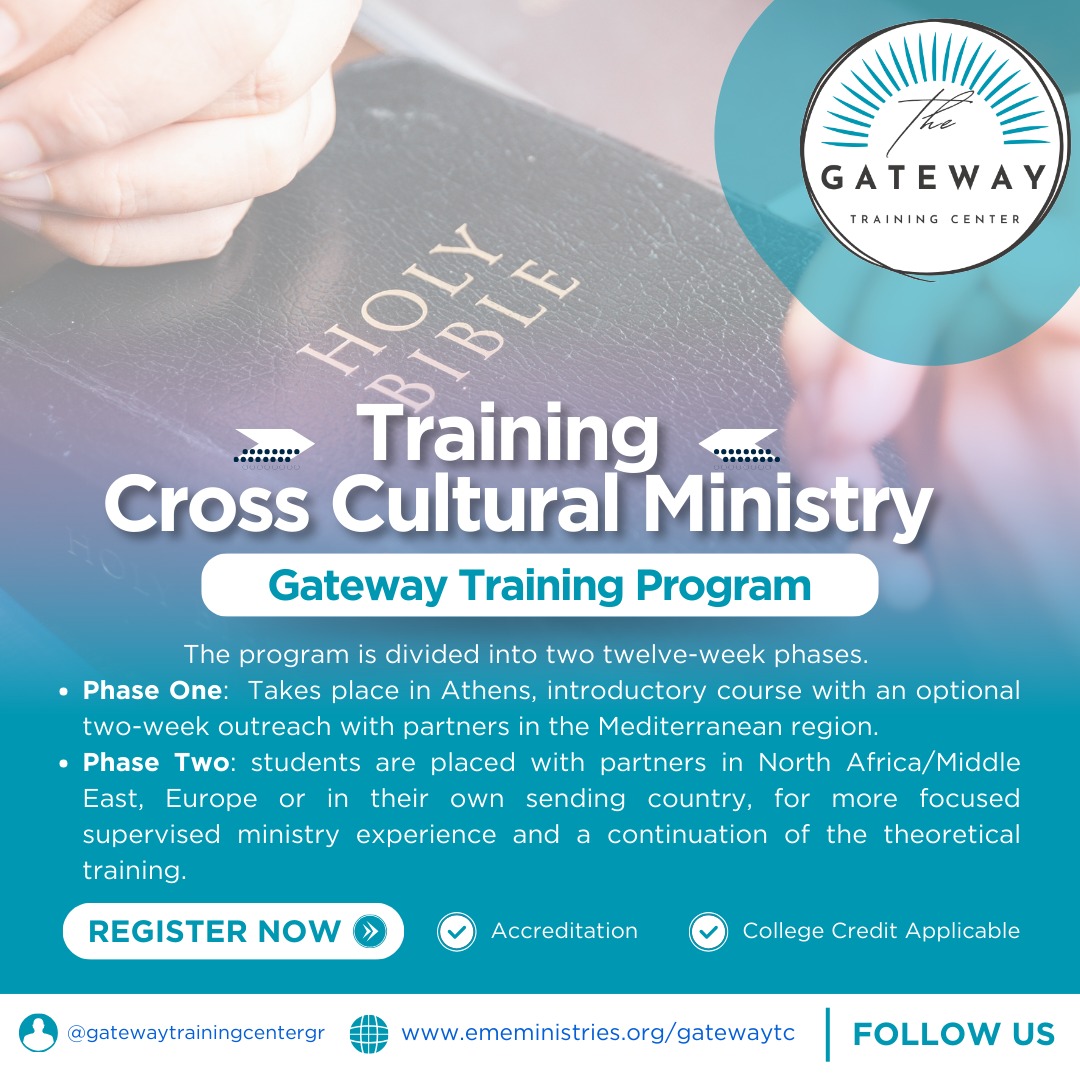Cross-Cultural Training Program
The program is divided into two twelve-week phases. The first phase in Athens is an introductory course with an optional two-week outreach with partners in the Mediterranean region. After the completion of phase one, students may move to phase two and are placed with partners in North Africa/Middle East, Europe or in their own sending country, for more focused supervised ministry experience and a continuation of the theoretical training. Participants can decide whether to do only the first phase, or both phases.
Phase One
The theoretical training of the first phase covers the following topics:
1) How to interpret, apply and communicate the Biblical text
2) How to effectively communicate the Gospel, make disciples, and train leaders cross-culturally
3) Leadership and living in a different cultural context
4) A ‘Footsteps of Paul’ tour through Greece.
All participants attend and participate in a local church in Athens and serve with a cross-cultural ministry for one day a week. Language learning is important for all cross-cultural contexts, and one hour every day is spent on learning a new language. Students will also be meeting regularly with long-term cross-cultural workers as part of the mentorship program. There is also an emphasis on community living and fellowship.
An optional two-week outreach at the end of the course gives the participants the opportunity to apply what they have learned while also getting introduced to a different cross-cultural context.
Phase Two
During the second phase, participants are placed with churches or cross-cultural workers in the context/country where they feel they are called to, or would like to explore for future ministry. This phase will be more practical than theoretical and will build on the skills developed during the first phase. Language learning is more focused, and the participants continue to be involved in a local church and meet with mentors in their new context.
Accreditation
Participants could attend the course only, work towards college credit, or complete a vocational qualification (additional costs may apply to enrolled in the accredited courses). To work towards college credit or a vocational qualification, additional work needs to be done, either during the course or afterwards. Participants can also change their type of enrolment anytime during the course.
